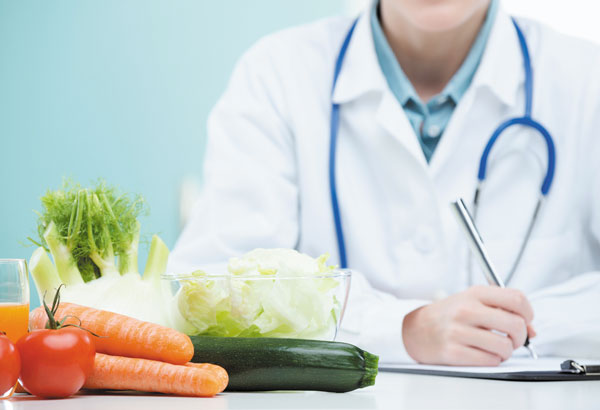This may not be a surprise to you, but vegetables are really good for you. Eat more fresh vegetables by joining our CSA. The season starts soon. Learn more here.
In case you need some convincing, below is an article one of our CSA members a nutritionist wrote about the benefits of vegetables.
Health Benefits of Vegetables
Vegetables are some of the healthiest foods we can eat, providing nutrients that are required to maintain our bodies as well as helping to reduce the risk for several chronic diseases.
Potassium, a mineral and electrolyte:
- is necessary to maintain healthy blood pressure
- supports the function of nerves and muscles, including heart contractions
- is essential for fluid and electrolyte balance as well as acid-base (or pH) balance
Folate, folacin or vitamin B9 (folic acid), a B vitamin:
- decreases the risk of neural tube defects, such as spina bifida, during early pregnancy
- is involved in brain development and function
- helps to form new cells in the body, including blood cells, platelets, DNA and RNA
Vitamin A, a fat-soluble vitamin stored in the liver:
- is needed to keep eyes, skin, teeth, bones and soft tissues healthy
- functions in the retina of the eye to maintain vision and prevent night blindness
- as an antioxidant, Vitamin A protects cell membranes and detoxifies free radicals
Vitamin C is a water-soluble vitamin, meaning it is not stored in the body and is therefore required daily:
- prevents scurvy, symptoms of which include skin disorders, bleeding gums, painful joints, weakness, depression, and increased susceptibility to infections
- facilitates the healing of cuts, bruises and wounds, through collagen synthesis
- is also an important antioxidant
Vegetables are also a good source of fiber, which:
- promotes digestive health and is crucial for proper bowel function
- lowers blood cholesterol levels and reduces the risk of heart disease
- provides a feeling of fullness and satiety with fewer calories, which can be beneficial for weight control
Since vegetables are naturally low in calories, eating several servings daily can help manage weight and decrease obesity by displacing higher-calorie foods.
Phytochemicals are other natural compounds found in vegetables that are thought to be responsible for some of the disease reduction associated with diets rich in plant foods.
They include antioxidants which stabilize free radicals to protect our cells against oxidative damage, reduce inflammation, slow the aging process and decrease the risk of certain cancers. Some are related to the natural colors of the foods, for example:
- Anthoxanthins, found in white foods such as potatoes, onions, turnips, parsnips, mushrooms and cauliflower
- Lycopene, found in tomatoes, tomato sauce and red peppers
- Lutein, found in green vegetables
- Carotene, found in orange vegetables
- Anthocyanidins, found in red cabbage, purple onions, eggplant and beets
Several studies have shown that those who follow the Mediterranean diet and the DASH (Dietary Approaches to Stop Hypertension) diet, both eating patterns which include abundant vegetables, experienced a decrease in some major chronic diseases.
Research reveals it is the synergistic effect of nutrients and phytochemicals working together that provide the most health benefit.
Although there is not an official definition, superfoods are foods that are generally accepted as very nutrient-rich, providing vitamins, minerals, antioxidants and/or fiber. Some plant foods that are considered to be exceptionally beneficial:
Broccoli belongs to a family called cruciferous vegetables (whose flowers resemble the shape of a cross, with their four petals), which include cauliflower, cabbage, kale, brussel sprouts, bok choy and similar green leafies. It contains vitamin C, vitamins B1, B2, B3, B6, B9, and vitamin K; minerals iron, magnesium, potassium, manganese, and zinc; fiber and the phytochemicals sulforaphane, indoles and beta carotene, lutein and zeaxanthin.
Tomatoes contain lycopene, a red phytonutrient that can eliminate damaging free radicals in the body’s tissues and protect against cancers. Cooked tomatoes contain more lycopene than raw tomatoes.
Sweet Potatoes, root vegetables that belongs to the morning glory family, are an excellent source of vitamin A, and have carotenoids, vitamin C, potassium, and fiber.
Spinach provides vitamins A, C and K, folate, calcium and fiber as well as antioxidants that absorb blue light, protecting the eye from macular degeneration.
Dishes prepared with spinach are called “a la Florentine”.
Fresh, colorful, crispy, crunchy, juicy, tangy, zesty, earthy and exotic, vegetables are a food we can feel good about eating.
Knowing that we’re feeding ourselves healthy foods creates a sense of wellbeing and empowerment, and alleviates the guilt we may feel after eating less healthful foods.
Vegetables are an alternative to processed, packaged items that contain salt, sugar and artificial flavorings that interfere with our palates–our taste buds’ ability to discern and appreciate the more delicate flavors and textures of natural foods.
Meals and snacks that include vegetables are more balanced, appealing and appetizing as their colors and texture provide contrast to meat, grains and starchy plant foods.
Eating vegetables can facilitate mindful eating as the colors, aromas, textures, and sound of crisp crunching, as well as the taste, involve all 5 of the senses and are likely to lead to a more satisfied and truly nourished feeling.
Including vegetables, particularly raw ones, can slow down our eating and heighten our awareness of the sensations associated with biting, chewing, tasting and swallowing, promoting increased enjoyment of the food and mealtime experience.
Vegetables offer a wider variety of flavors than any other group of food.
Vegetables are a food we can grow ourselves, which can also be a very rewarding experience, as well as sharing the bounty from our gardens.
-Connie Urich

